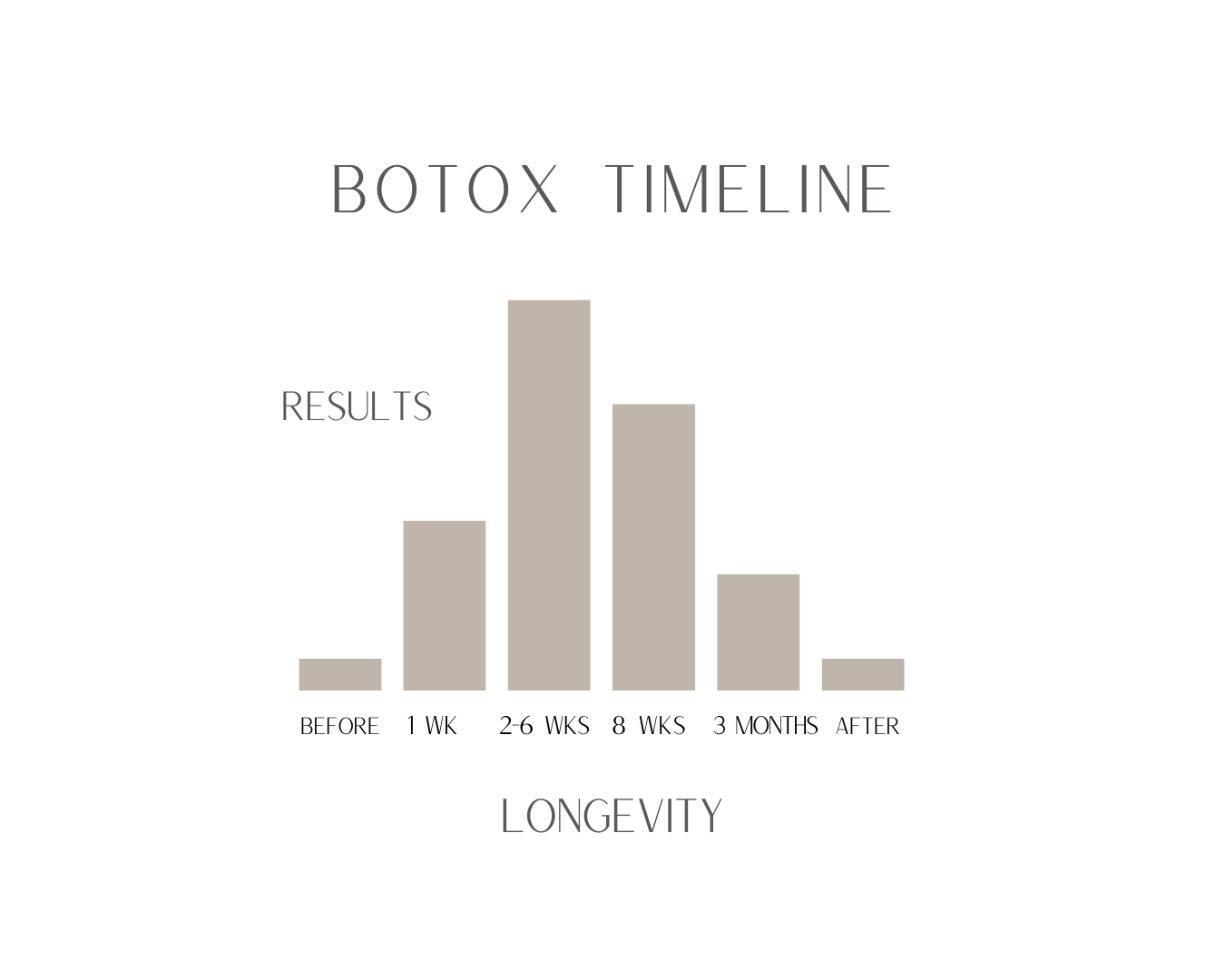How Long Does Botox Last? Your Expert Guide
What Is Botox and How Does It Work?
Botox is a purified form of botulinum toxin type A that works by temporarily relaxing targeted facial muscles. When administered by a qualified provider, Botox softens the appearance of fine lines and wrinkles, especially those caused by repetitive facial movements like frowning, squinting, or raising the eyebrows.
Key Takeaways
Botox results typically last 3 to 4 months, with full effects appearing around 10–14 days post-treatment.
Longevity depends on factors like treatment area, metabolism, and lifestyle habits such as sun exposure and exercise.
Consistent treatments can help results last longer over time, especially when scheduled proactively every 3 months.
How Long Do Botox Results Typically Last?
Average Duration
On average, Botox results last between 3 to 4 months. However, this can vary based on individual factors such as treatment area, metabolism, and consistency of treatments. Some clients may see results fading as early as 2.5 months, while others continue to enjoy visible smoothing effects well into the 4-month mark or beyond, especially with regular maintenance.
Timeline of Effects
Here’s a general timeline of what to expect after your Botox appointment:
3–5 days post-treatment: You may begin to notice subtle softening of treated lines.
10–14 days: Full results typically become visible.
2–3 months: The effects remain at their peak.
3–4 months: Gradual return of muscle movement and fine lines may start to appear.
What Factors Affect How Long Botox Lasts?
Several factors can influence how long your Botox results last. Here’s a closer look:
Treatment Area
Different areas of the face respond to Botox differently. For example:
Forehead lines and glabellar (frown) lines often maintain results for 3–4 months.
Crow’s feet may metabolize faster due to more frequent muscle movement.
Masseter or jawline slimming treatments can last longer—up to 6 months or more.
Individual Metabolism and Lifestyle
Each body metabolizes Botox at a unique rate. If you have a fast metabolism or live a very active lifestyle, you may notice results fading sooner than average.
Other lifestyle factors that may influence Botox longevity:
Excessive sun exposure
Smoking
High stress levels
First-Timers vs. Regular Users
For first-time Botox users, results may wear off slightly quicker—typically closer to the 3-month mark—as your muscles adjust. With consistent treatments, muscle memory tends to diminish, and you may find results lasting longer over time.
How to Help Botox Last Longer
While Botox isn’t permanent, there are simple steps you can take to maintain your results:
Follow all post-treatment aftercare instructions
Avoid rubbing or massaging the treated area
Minimize excessive sweating or heat exposure for the first 24–48 hours
Stay consistent with touch-up appointments
When to Schedule Your Next Appointment
To maintain a smooth, refreshed appearance year-round, we recommend scheduling your next Botox treatment every 3 months. Don’t wait until all movement returns, by timing your treatments proactively, you can enjoy continuous, natural-looking results without the dramatic ups and downs.
Final Thoughts: What to Expect from Botox Longevity
No two faces are the same, and Botox results can vary depending on your unique anatomy, lifestyle, and treatment goals. While it’s not a permanent solution, Botox offers long-lasting improvement when performed by a qualified provider and maintained consistently. A personalized treatment plan ensures your results stay smooth, subtle, and balanced over time.
Looking for a One-on-One Consultation? Let Thrive Help
In the Cincinnati Area? Schedule Your Appointment Today
At Thrive Med Spa, we take a personalized, results-driven approach to Botox and all our aesthetic treatments. Whether you're new to injectables or looking for a trusted provider to help maintain your glow, we’re here to support you every step of the way.
About Thrive Medical Spa
Located in the heart of historic Milford, Thrive Med Spa is a premier destination for facial balancing, natural rejuvenation, and advanced skin treatments. Led by experienced Nurse Practitioner, Hannah Simms, we specialize in helping clients look and feel their most confident through expert care and an elevated, welcoming environment.
Frequently Asked Questions (FAQs)
How long does Botox last on the forehead?
Botox typically lasts 3 months in the forehead area. However, this can vary slightly depending on your facial muscle activity, metabolism, and how consistently you’ve had treatments. With regular maintenance, some clients experience longer-lasting results over time.
Does Botox last longer in certain areas?
Yes, Botox can last longer in some areas than others. For example, masseter (jaw) or underarm treatments may last up to 6 months or more, while more expressive areas like crow’s feet may metabolize more quickly. The forehead and glabella (frown lines) tend to fall within the average 3–4 month range.
How often should I get Botox?
Most clients schedule Botox treatments every 3 to 4 months to maintain smooth, natural-looking results. Rather than waiting for full movement to return, staying on a consistent schedule can help preserve muscle softness and prevent deeper wrinkle formation.
Can anything make Botox wear off faster?
Yes, certain factors can cause Botox to break down more quickly. These include:
High levels of physical activity
Faster metabolism
Smoking
Frequent sun exposure or tanning
Poor skincare or inconsistent treatment history
Following post-treatment care and maintaining a healthy lifestyle can help maximize your results.
Will I look older when Botox wears off?
No, when Botox wears off, your muscles gradually regain movement, and lines or wrinkles may begin to reappear as they were before treatment. You won't look older than you did prior to Botox, and many clients notice their lines return less harshly with consistent use over time.
What does Botox look like after 10 years?
When administered consistently and correctly, Botox can help slow the development of deeper wrinkles by preventing repetitive muscle movements. Many long-term users report smoother skin, softer expression lines, and an overall more refreshed appearance, even a decade later. As always, working with a skilled provider ensures natural, balanced results that age gracefully.


